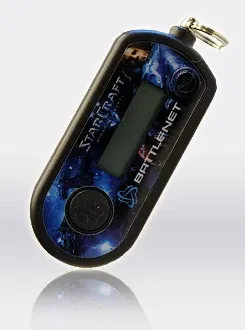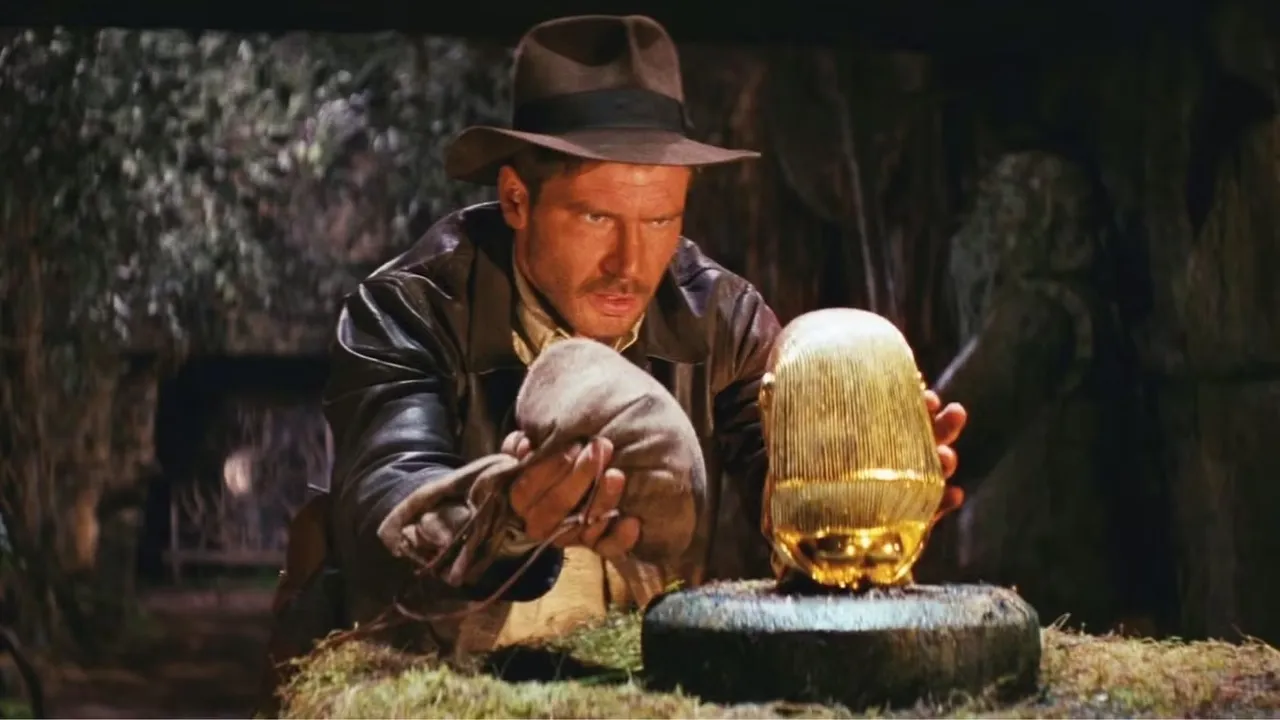
THIS IS MY AUTHENTICATOR
THERE ARE MANY LIKE IT BUT THIS ONE IS MINE.
A few days ago I went to log into my battle.net account; not to play a game or anything but for some weird reason (like checking my payment history; funny story their UI is better than my actual bank). It's probably been over a year since I last logged into a Blizzard product... in fact I can probably narrow that down to June 2023 when Diablo 4 launched and I was playing it for a while. I bought the expensive $100 collectors edition because it was "free" with the use of my "Blizzard Bucks" which I acquired back in 2017 selling WoW gold on the auction house. I still have $170 left so I can buy two more Blizzard games for free.

For those who are unaware, battle.net was absolutely revolutionary when it came out. Launched on December 31, 1996, it was one of the only reliable places you could play games online with other people (The Diablo 2 experience was incredible). Before that it was very difficult to play games online. I remember connecting to friends through 56k modem dials directly just to play games like Diablo 1 with a single friend. I even paid $20 (and $20 again for a second key) to buy a program called Kali that would simulate a virtual LAN that allowed gamers to play all sorts of games together before there was ever an official way to do it.
Pioneer!
Battle.net revolutionized this by streamlining the entire process and creating a space for gamers to meet, chat, and play Blizzard games like Warcraft, Diablo, and Starcraft (those were literally all their games at the time). And the best part? It was free, which was honestly kind of shocking back then when everything cost something (WEB1 subscription service; WEB2 did not exist).
Of course this was all back in the day in which Blizzard was a small cool edgy company (pre World of Warcraft) and were my favorite gaming outfit by far. Their games were dark, gritty, and badass. But as time goes on and the industry scales up, the games become candy colored trash-piles designed to get as many sales as possible. I hope that crypto can one day usher us back into the badass era of communal cult gaming with specific focuses that don't need to rely on mass salesmanship.
In any case
My battle.net account is secured with an "authenticator". This is a device that launched in 2008, and I'm almost certain I acquired one the second it came out (probably preordered). Before then, this was top-of-the-line high-tech security for high-level government/military stuff. A password that changes every minute; amazing! Today, almost everyone in crypto is familiar with this tech and uses Google Auth to secure their exchange account. Anyone that still uses SMS text message 2FA is under threat of SIM-swap attack (and it's just less reliable).
- 2008: Physical Blizzard Authenticator released.
- 2009: Battle.net mobile authenticator app released for iOS and Android.
- 2016: Update to the Battle.net mobile authenticator app, allowing users to authenticate login with a single press of a button.
- 2019: Discontinuation of the physical Blizzard Authenticator.
- 2024: Discontinuation of the mobile authenticator app and integration of functionality into the Battle.net app.

End of an Era
So I log into my bnet account and it asks for my authenticator code... and my device issues a low battery warning.... NOOOOOOO. I knew this day was coming but it is very sad for some reason. I like having the physical device, and I was ready to buy another one if they were still available, but they were discontinued in 2019. Wild. It's so over.

I even asked AI if there was anything I could do. It told me what kind of battery the authenticator uses and that I could try to swap it out Indiana Jones style. Unfortunately the seed of these authenticators is not hardcoded into the device... so apparently if it loses power the entire device loses its seed, bricks up, and becomes totally worthless. If I want to salvage the device I'd have to pull some crazy shit like keep the device powered using a soldering iron while I switch the battery. I've never used a soldering iron but I was tempted.

"what happens if the battery runs out?"
Trying to reclaim my account without access to the authenticator looked like a huge pain in the ass that could take weeks and require me to KYC with Blizzard. I wanted to avoid the hassle so I begrudgingly disabled my physical authenticator and downloaded the app with the rest of the plebs. I'm still kind of annoyed about it even though I don't even play Blizzard games right now. There's just a lot of history there I guess. It's not an exaggeration to say I've spent years of my life playing their games, which is pretty crazy to think about.

Authenticator lawsuit?
I remember years ago someone told me that Blizzard once got sued over the physical authenticators. They made it sound like the plaintiffs won but Blizzard had it rightfully thrown out at the start.
In 2012, Blizzard Entertainment faced a class action lawsuit concerning its Battle.net Authenticator. Players alleged that Blizzard was unfairly forcing users to purchase authenticators, despite not providing a sufficient level of security for their accounts and failing to adequately disclose the risks involved.
https://www.reddit.com/r/Games/comments/12y4w0/blizzard_sued_over_battlenet_authentication/
The Lawsuit:
A class action lawsuit was filed by Benjamin Bell against Blizzard, alleging that the company's practice of requiring Battle.net authenticators for account security was deceptive and unfair.
Authenticator Controversy:
The lawsuit argued that Battle.net authenticators, while intended to enhance security, are not a reliable solution and should be free for all users, especially given the heightened risk of account theft.
Blizzard's Response:
Blizzard vigorously defended its actions, claiming the lawsuit was "without merit" and based on a misunderstanding of the Authenticator's purpose.
I hate to be on the side of the greedy corporation here... but Blizzard is right. You can't force someone to give away a physical product that costs money. This flagrant claim that Blizzard account security was somehow not better than other companies was blatantly false; people are just stupid and use the same email/password combination on random websites that get hacked (blizzard fan sites and such).
Estimated Profits:
The plaintiffs in the lawsuit estimated that Blizzard had earned roughly $26 million from the sale of Authenticators.
This is clearly a lie as well. I remember the authenticator being something like $8 (no shipping). Blizzard was selling them at cost or even at a loss to try and stop hackers from compromising all the valuable accounts (Mostly WoW hacks). Just like a crypto hardware wallet, you did not need an authenticator... it was just kind of stupid to not have one if your account was worth more than $50.
The original cost of the device was $6.50, but are now sold online for up to $40.
You can see that people share my same sentiment and were willing to buy the physical device (used) for an x6 markup once they were discontinued.
Blizzard's physical authenticators, which are DigiPass Go 6 models, are typically rated to last for 7 years of use. However, some users have reported them lasting longer, even into the 10-year range, with some experiencing issues with the display or button response before that. The batteries are not replaceable, so once they die, the authenticator becomes unusable.
Mine lasted 17 years... lol!
I guess I had a good run.
And I suppose it still technically works but... alas, disconnected.

Conclusion
You used to be able to own things, but now we rent them, and the issue is only getting worse. People used to own physical CDs and controlled the media with a physical device. Now they rely on a digital server to feed them the content that may or may not be around in the future. Crypto is supposed to solve this problem of digital ownership, but even crypto fell victim to this exact scam during the NFT craze in which the blockchain stored a hash of a picture that existed on a centralized server that no longer exists.
We need to return to the good ol' days of "before it was cool". Content no longer needs to be candy-coated and spoon-fed to the widest audience possible to have success. Crypto has proven that even small niche cultish communities can create immense value without watering down the brand. Maybe I'll buy that soldering iron after all.